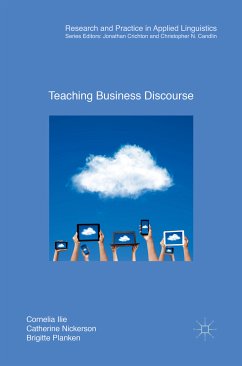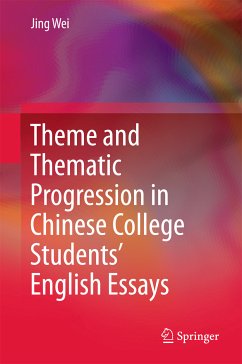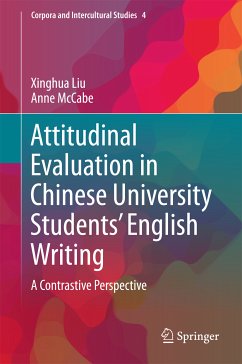
Email Discourse Among Chinese Using English as a Lingua Franca (eBook, PDF)
Versandkostenfrei!
Sofort per Download lieferbar
72,95 €
inkl. MwSt.
Weitere Ausgaben:

PAYBACK Punkte
36 °P sammeln!
This edited volume makes a valuable contribution to the burgeoning research field of English as a lingua franca. In a pioneering step, the collection is exclusively devoted to the English email discourse of Chinese speakers. The studies address innovative topics related to various contexts and relationships, using several different approaches and theories, which taken together shed light on how English serves as a lingua franca in multiple types of global written communication. The research topics presented are organized into four thematic sections, including emails from students to professors...
This edited volume makes a valuable contribution to the burgeoning research field of English as a lingua franca. In a pioneering step, the collection is exclusively devoted to the English email discourse of Chinese speakers. The studies address innovative topics related to various contexts and relationships, using several different approaches and theories, which taken together shed light on how English serves as a lingua franca in multiple types of global written communication. The research topics presented are organized into four thematic sections, including emails from students to professors, emails from students to the international academic community, emails from peer to peer, and emails at the workplace.
This collection of empirical research invites readers to consider the special features of apologies, requests, terms of address, politeness, and discourse organization, and how cultural differences may affect the use or interpretation of each. Throughout the book, readers will also discover how Chinese speakers use special features and strategies to construct their identity, establish relationships, and achieve successful communication in English. This highly informative, thought-provoking book also provides insights on methods for teaching email discourse using English as a lingua franca and suggests directions for future research.
Dieser Download kann aus rechtlichen Gründen nur mit Rechnungsadresse in A, B, BG, CY, CZ, D, DK, EW, E, FIN, F, GR, HR, H, IRL, I, LT, L, LR, M, NL, PL, P, R, S, SLO, SK ausgeliefert werden.












